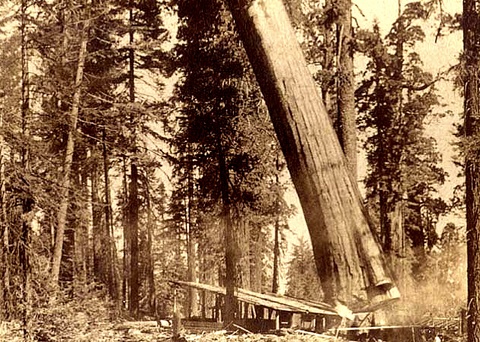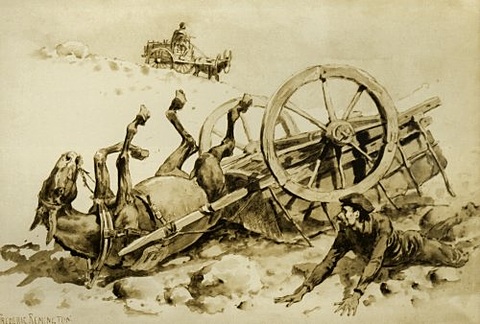By James Kunstler on 15 September 2008 for Kunstler.com -
(http://kunstler.com/mags_diary24.html)
It turns out the real hurricane blew through Wall Street last week, not
Galveston. This morning, Manhattan is strewn chest-deep with the debris
of banking and at this hour (seven a.m.) nobody knows how far, deep,
and wide the damage will spread. The fear, of course, is that we are
witnessing a classic "house-of-cards" or "dominos-in-a-row," situation,
and that the death of Lehman Brothers and Merrill Lynch will cascade
into a generalized collapse of the entire consensus of value that
supports mediums of exchange.
At least one thing ought to be clear: this has happened due to the
negligence and misfeasance of the regulating authorities, namely the
Republican Party, and that now all the hoopla surrounding Sarah Palin
can be swept away revealing that group to be what they actually are: the party that wrecked America.
I hope one or two Barack Obama campaign officials are reading this
blog. You must commence the re-branding of the opposition right now.
The Republicans must be clearly identified as, the party that wrecked America.
Many things happening this week will be interesting to see and hear,
but just now an outstanding question is how on earth can the Bank of
America buy Merrill Lynch for $50 billion after assuming the
liabilities of the tarbaby known as Countrywide? But that little detail
may be lost in the din as other banks and bank-like organizations start
crashing like sequoia trees in a national forest.
I wish I knew whether this extravaganza of ruin might settle the
question as to whether America goes into hyperinflation or implacable
deflation, but the net effect is that money is leaving the system in
big gobs. And if not money per se, then the idea of money as
represented in certificates, contracts, counter-party positions, and
gentlemen's agreements. This is the day that America finds itself a
much poorer nation. The capital we thought was there, is gone.
A lot of it was actually translated over the years into Hamptons
villas, Gulfstream jets, and other playthings that will now go up on
Ebay or some equivalent as we turn into Yard Sale Nation in a general
liquidation of remaining assets. Of course, the trouble in a situation
like this, where absolutely everybody is trying to pawn off assets, is
that there are very few buyers on the scene, so the prices of all these
things go down down down. Everything is for sale and nobody has any
money.
This was essentially the
state of things in the Great Depression of the 1930s, and the only
escape from that turned out to be the mobilization for war. And in the
aftermath of that terrible war, we were the only industrial nation that
hadn't been bombed to rubble. What's more, we had a very handsome
supply of industrial world's primary resource, oil, at our disposal. So
we spent the next thirty years making oodles of things and selling them
to people in other lands (lending them the money to buy), until these
nations were back on their own feet and solvent. And after 1975, the
industrial club picked up a bunch of new members and they all began to
clean our clock.
So, as our industrial base waned, and our factories got old and
brittle, and our labor force was steeply under-bid by cheaper labor
forces, we embarked on a quest for "the new economy." This was
represented in successive turns as the information economy, the
consumer economy, the high-tech economy, et cetera. They were all
ruses, aimed at concealing the truth -- which was that we had become a
society no longer producing things of value, no longer generating real
wealth. The final act of this farce has been the so-called "financial
industry."
That "industry" turned out to be most earnestly devoted to the
production of complex swindles. They were so finely engineered that it
took twenty years for the swindles to stand revealed, and they were
cleverly hitched to the primary thing that the American public vested
its identity in: house-and-home. Thus, much of the public finds itself
in very real danger of becoming homeless and broke.
We generally recognize that some wicked-massive transfer of wealth
occurred in the process of the mortgage fiasco, but it remains to be
seen whether any residue of this wealth can actually be retained, as
represented by currencies, contracts, and supposed securities. The
wholesale settling of debt now underway may leave an awful lot of this
stuff with no value.
We should be frightened by the political implications of this Great
Implosion of presumed wealth. Some group of somebodies will have to
clean up this mess. Moving toward a major election, it is hard to
imagine the American people giving the clean-up task to the very group
that created the mess -- no matter how many cute little faces Sarah
Palin can make on TV. Both parties have so far managed to ignore the
gathering crisis of banking and money, but they can't ignore the
sequoia trees crashing down around their ankles and shaking the earth
they stand on.
At issue now will be the question of legitimacy in all its human social
dimensions. Is our money legitimate? Is the authority of our elected
officials legitimate? Are our values and ideas legitimate? These are
the things that will determine what kind of future we find ourselves in.
So, to begin this process, and to clarify the situation, I urge readers
of this blog to identify the Republican Party by its new brand-name: the party that wrecked America.
At least, then, we can reinstate one cardinal value into the juddering
structure of what we claim to believe: that actions have consequences,
that you can't just swindle and loot a society and walk away with the
swag.
Spread the word, change the tone of this campaign, and keep posted. This will be a momentous week.
|


